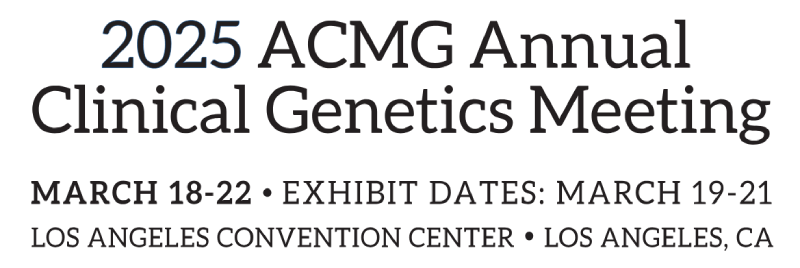Emerging Therapeutics: Known and Expected Challenges of this New Era
20 Mar 2025
Venue:
Los Angeles Convention Centre
Meeting Room:
502 AB
Clinical Genetics and Therapeutics
-
Accredited:
- Accredited
-
Primary Categories:
- Health services and Implementation
-
Secondary Categories:
- Health services and Implementation
Over the past 20 years, medical genetics has experienced a slow but steady incorporation of therapeutics, with the advent of therapies like enzyme replacement therapy. However, more recently, there has been an exponential growth of therapies for conditions with larger groups of affected individuals such as phenylketonuria (pegvaliase-pqpz), achondroplasia (vosoritide) or x-linked adrenoleukodystrophy (Skysona) remarking the beginning of a “therapeutic era” in our field.
As with any other change, growing pains are expected. This session looks to display the issues encountered when implementing novel therapies for multiple types of communities, rural or urban; clinical trial access; describe concerns with potential adverse events both known and unknown; and strategies for healthcare providers to “keep-up”.
Note: This session is on behalf of the ACMG Therapeutics Committee and part of a larger topic labeled “Emerging Therapeutics” aimed to work in conjunction with its sister sessions "Real-World Outcomes of Emerging Therapeutics: What's happening after the accelerated FDA approval?” and "Perspectives on Off-Label Use of Therapeutics in Rare Diseases".
As with any other change, growing pains are expected. This session looks to display the issues encountered when implementing novel therapies for multiple types of communities, rural or urban; clinical trial access; describe concerns with potential adverse events both known and unknown; and strategies for healthcare providers to “keep-up”.
- Access to Therapeutics - There are many factors that affect access to basic healthcare such as socioeconomic (cost of medication, insurance coverage, etc), geographic location or scarcity of trained healthcare providers. These are all accentuated for individuals with rare disorders. A clear example is the market cost of gene therapies like pediatric geneticist at Seattle Children's Hospital ($3,000,000). We have invited two remarkable speakers to discuss the particularities for their regions:
- Experiences from the (Continental) Northwest. 15 min
- Medical geneticists represent < 1% of the physician workforce. Dr. Emily Shelkowitz is a pediatric geneticist at Seattle Children's Hospital . She can provide her perspective on being one of two Geneticists for a state with a population of 1.9 million people and how this impacts implementation use of newer therapeutics for care.
- A window into Puerto Rico and adjacent regions. 15 min
- In addition to a reduced workforce, clinical genetics is a field that continues to evolve every minute, making it difficult to keep up both with the new changes and the needs of their population that continue to increase as our field progresses. Dr. Frances Velez-Bartolomei, a Clinical and Biochemical Geneticist from Puerto Rico, will discuss about the limitations encountered upon not only implementing “traditional” therapies like enzyme replacement therapies but also when incorporating “novel” gene therapies and how to overcome these boundaries.
- Managing adverse reactions in remote settings. 15 min - Multiple communities across North America rely on remote practitioners who are trying to close the access gap. With the advent of these therapies and due to their mechanism of action or delivery methods, affected individuals are prone to develop side effects/adverse reactions that could range from mild to severe. We would like Dr. Cary Harding, Biochemical Geneticist at OHSU, to discuss his experience when providing remote services for communities that could be hundreds of miles apart from their closest clinician.
Note: This session is on behalf of the ACMG Therapeutics Committee and part of a larger topic labeled “Emerging Therapeutics” aimed to work in conjunction with its sister sessions "Real-World Outcomes of Emerging Therapeutics: What's happening after the accelerated FDA approval?” and "Perspectives on Off-Label Use of Therapeutics in Rare Diseases".
Learning Objectives
- Discuss the limitations encountered upon providing traditional and novel therapies in remote settings
- Identify complications and adverse reactions faced by individuals affected by rare disorders from remote communities
- Recognize alternatives when accessing or providing rare disease therapies to affected individuals in remote communities
- Appraise the most effective options towards improving care for affected individuals with limited resources
Agenda
-
 Introduction5:10 PM – 5:15 PM
Introduction5:10 PM – 5:15 PM -
 Introduction5:10 PM – 5:15 PM
Introduction5:10 PM – 5:15 PM -
 Access to Therapeutics: Experiences from the (Continental) Northwest5:15 PM – 5:30 PM
Access to Therapeutics: Experiences from the (Continental) Northwest5:15 PM – 5:30 PM -
Access to Therapeutics: A Window into Puerto Rico and Adjacent Regions5:30 PM – 5:45 PM
-
 Access to Therapeutics: Managing Adversity in Remote Settings5:45 PM – 6:00 PM
Access to Therapeutics: Managing Adversity in Remote Settings5:45 PM – 6:00 PM -
Panel DiscussionPanel Discussion and Q&A6:00 PM – 6:10 PM
-





)
)
)
)
)
)
)
)
)
)
)
)
)
)
)
)
)
)
)
)